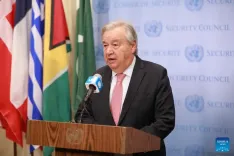Is Pakistan Engaging in Illegal Mass Surveillance of Its Citizens?

Synopsis
Key Takeaways
- Pakistan's surveillance capabilities are expanding with foreign technology.
- The new WMS 2.0 firewall and LIMS are key tools in this effort.
- There is a significant chilling effect on freedom of expression.
- The legal system provides inadequate protections against surveillance.
- Journalists are particularly vulnerable to scrutiny and censorship.
Islamabad, Sep 9 (NationPress) A recent report by Amnesty International reveals that Pakistan is expanding its illegal mass surveillance and censorship efforts, aided by a network of foreign companies. This investigation highlights how the Pakistani government has acquired advanced technology through a clandestine global supply chain.
The report indicates that these sophisticated surveillance and censorship mechanisms include the new firewall, known as the Web Monitoring System (WMS 2.0), and a Lawful Intercept Management System (LIMS).
In the report titled 'Shadows of Control', Amnesty documented the evolution of the WMS firewall, initially utilizing technology from a Canadian firm.
According to Agnes Callamard, Secretary General of Amnesty International, “Pakistan's Web Monitoring System and Lawful Intercept Management System function as watchtowers, perpetually monitoring the lives of everyday citizens. In Pakistan, your texts, emails, calls, and internet usage are all under observation. However, citizens remain largely oblivious to this pervasive surveillance, which has far-reaching implications. This grim reality poses a significant threat as it operates in secrecy, severely curtailing freedom of expression and access to information.”
Callamard elaborated that the blend of insufficient laws and emerging technologies is enhancing the State's capacity to curb privacy rights, freedom of expression, and the right to peaceful assembly, leading to a “chilling effect” and a “reduction of civic space” in Pakistan.
The human rights organization pointed out that concerns over illegal surveillance and online censorship in Pakistan have persisted for years.
Amnesty International's report highlights, “Amid a repressive political climate, the country's legal framework fails to provide genuine protections against mass surveillance. Existing laws lack adequate safeguards, and those that do exist, like warrant requirements under the Fair Trial Act, are frequently disregarded. Authorities continue to acquire increasingly advanced surveillance and censorship technologies from foreign companies, amplifying the government's ability to suppress dissent, particularly targeting journalists, civil society, and the public.”
In conversations with the rights organization, a journalist shared that constant surveillance has compelled him to practice self-censorship. He recounted how, after publishing an article on corruption, he faced intense scrutiny from Pakistani authorities, which impacted him and those close to him.
The journalist stated, “Clearly, everything is being monitored, whether it's email or calls. Following my article, anyone I spoke to, even on WhatsApp, faced increased scrutiny. Authorities would approach these individuals and question them about our conversations. They can go to extreme lengths... Now, I often go months without communicating with my family for fear that they might be targeted.”







